東ティモール民主共和国大使館より、ヌノ・アルバレス・モニズ・マルケス・アルベス参事官、また外務省より二瓶大輔氏にお越しいただき、2018年5月12日に行われた総選挙の実施とその後の展望についてご講演いただきました。
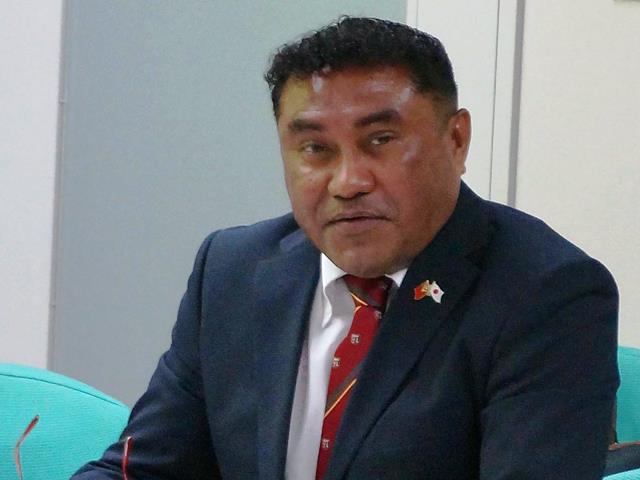
アルベス参事官から、東ティモールに関する基本情報、総選挙に至るまでの経緯についてご紹介いただきました。グスマン氏率いるAMPが、アルカティリ氏率いるFRETILINに対して勝利を収めた今回の選挙は、二大政治リーダーの存在感を示す結果となりました。もっとも、参事官によれば、選挙を通じて大きな混乱は発生せず、東ティモールは東南アジア随一の民主国家であると国際的に認められていることなど、民主的ガバナンスの確かな進展についてもご説明いただきました。
選挙の結果、CNRT 23、自由党8、クンツ5で構成された国会議員35名を擁し、新たな第8憲法政府を樹立するにいたりました。5月12日に行われた今回の選挙は自由で公正で信頼できる行事であり、フリーダム・ハウス・インデックスによって高い評価も受けました。「このことはまさに、東ティモールが自由な国であることの何よりの証である」、とアルベス参事官は語りました。
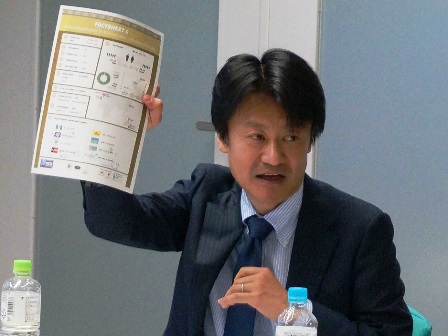
続いて、外務省南部アジア部南東アジア第二課首席事務官の二瓶大輔氏に、東ティモール総選挙を受けた日本の反応についてご説明いただきました。今回の総選挙について、日本は東ティモールにおける民主主義の成熟性を示すものとして評価するとともに、安定化への期待を持っているという点について言及されました。そして、貿易や投資といった経済的連帯のみならず、災害支援や人道援助といった側面における日本・東ティモール両国間の将来的な協力の可能性についてもご紹介いただきました。
具体的には、選挙キャンペーンが円滑に推移し、大きな混乱なく選挙を実施することができたことは、まさに民主主義の定着の証左であること。そして、選挙の結果、AMPの国民議会多数派形成がほぼ確実となり、停滞した国政が本格的に再起動される見通しとなったこと。最後に、今回の選挙の成功により、2016年の共同文書の精神を踏まえ、日本としては、日・東ティモール関係を更に強化・発展させるための基盤が整うことに期待しているという旨、二瓶氏よりご説明がありました。
その後のディスカッションでは、まず、花田吉隆元東ティモール大使から二大政治リーダーの関係性が東ティモール政治の安定化にもたらす影響、また、未来を担う若い世代へ目を向ける必要性についてコメントをいただきました。続いて、元UNMIT民主的ガバナンス部長の井上健氏から、東ティモールでの民主的ガバナンスの発展についてカンボジアとの比較も交えたお話をいただきました。更に、質疑応答セッションにおいては、東ティモールにおけるSDGsの実践や、言語をはじめとする国家の統一、東南アジアにおける開発独裁といった多様な論点が挙げられ活発な議論が行われました。
After these two presentations, Prof. Kihara-Hunt Ai introduced two discussants for the session.
The first discussant was Professor Yoshitaka Hanada, Former Ambassador to Timor-Leste and Professor of Global Security Center of the National Defense Academy. He mentioned 3 points were crucial. First, rivalry relations. Politics of Timor-Leste was led by two leaders, Xanana Gusmão and Mari Alkatiri. The relationship between two has not been always calm. If tension amounted, Timor-Leste destabilized, if it calmed the country stabilized. Since 2012, after withdrawal of PKO, the relation between two turned improved.
Second, generation change. Gusmão tried to hand over the leadership to younger generation, which he thought tremendously important for future stability of the country. Araujo, 51, the member of FRETILIN, opposition party, succeeded Gusmão with the consent of Alkatiri. 2017 was the turning point for the relationship of two. The election took place and FRETILIN won but with no majority. After having failed to form coalition, FRETILIN started minority government led by Alkatiri, the premier minister. This clear reverse of generation change deteriorated the relationship of two leaders. Now, after the election in 2018, Gusmão again took leadership of the country. It is quite important if the relationship of two improved and the generation change further be promoted.
Third, change of the society. With high birth rate, constituency of Timor-Leste is drastically changing. Younger generation, who do not know the difficult period of the struggle against Indonesia, now occupy more than 60 percent of the population, and are not satisfied with economic policy driven by Alkatiri, Gusmão, and even by Araujo. The leaders put emphasis on “big projects” but the young claim improvement of life standard. How to cope with the demand by younger generation must be crucial for further stability of the country.
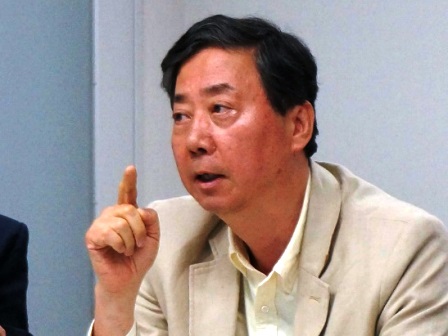
The second discussant was Mr. Ken Inoue, Former Director for Democratic Governance, United Nations Mission for Timor-Leste (UNMIT) and JICA Senior Advisor on Democratic Governance. He focused on the current situation and stated that democratic governance in Timor Leste seems to be working well with its rank 43 in the democracy index in 2017. Then, with his long-time experience working with Cambodia, he shared how the executive body (government), the legislative body (parliament), judiciary (courts), non-state actors and the economy should be functioning to prevent Timor-Leste from falling into the trap of an authoritarian regime.
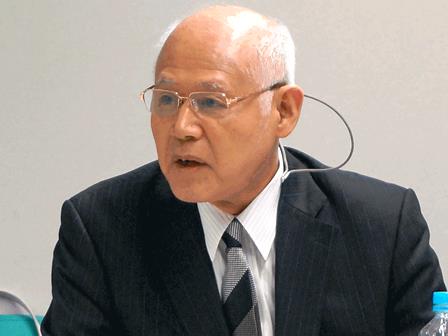
Professor Inomata noted that Timor-Leste is an island country which gained political independence and petroleum resources from Australia, but the country depends too heavily on natural resources for income. Press freedom is respected but they need strong leadership required for real development.
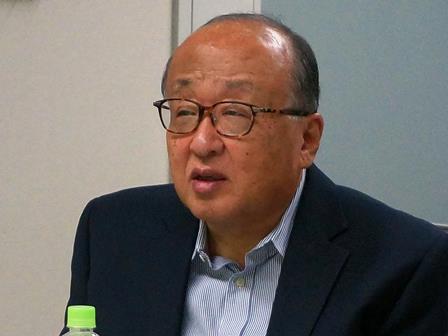
Former Deputy Executive Director of UNFPA and Visiting Professor of Kwansei Gakuin University Kunio Waki pointed out the language is an important factor for nation building. It was reported that Portuguese and the local traditional language were official languages while Bahasa Indonesia and English are widely spoken as working languages.
For the integration of the various sectors of the society the issue of languages to facilitate communications among citizens needs to be given sufficient attention. Waki wondered if the government had a clear vision and policy on this issue.
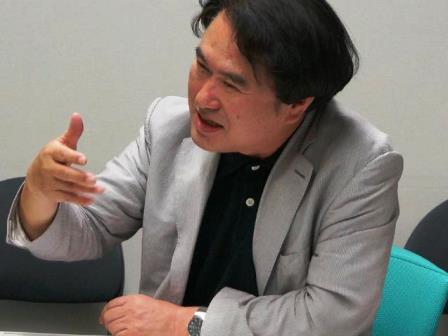
Profesor Masaru Ishizumi, Director of the International Business and Management of Kanagawa University commented on the implications of access to internet and other communication facilities for political and social developments. Young people, he argued, are key agents of social change toward democratization.
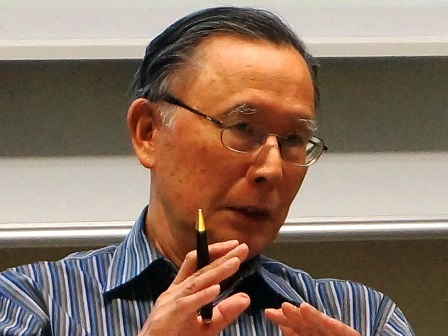
In concluding the session, Professor Sukehiro Hasegawa, President of the Global Peacebuilding Association of Japan (GPAJ) stated the result of national parliamentary elections proved the maturity of democratic governance in Timor-Leste. It was significant that Chairman Xanana Gusmão of the Aliança de Mudança para o Progresso (AMP), a coalition of three opposition parties which won an absolute majority of 34 of the 65 seats in the National Parliament reiterated in his letter to the GPAJ members the commitment of Timorese political leaders to democratic governance. FRETILIN has accepted the ruling by the court about the result of vote counting. Secretary-General of FRETILIN party, Mari Alkatiri, has decided to form a strong opposition in parliament, while prohibiting its members to join in the new Government. Professor Hasegawa then addressed the key issue discussants and commentators raised about the ability of Timorese leaders to bring about the vitality of economy which depended on exclusively on petroleum resources. There was the need to create non-oil sector economic activity and raise the standard of living in rural areas. This depended on the will and capability of Timorese leaders and people – a challenge that will not go away with freedom of expression and mere democratic governance.